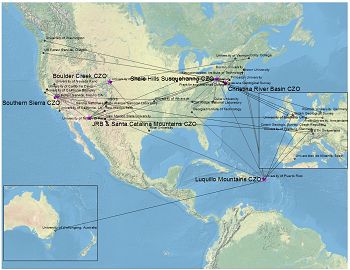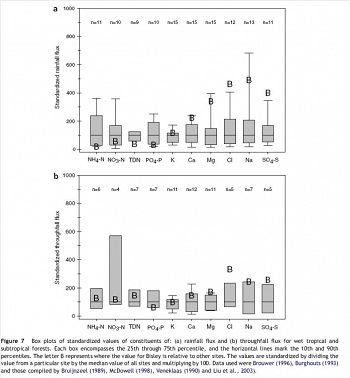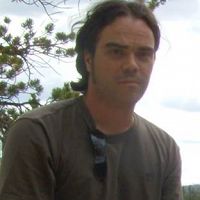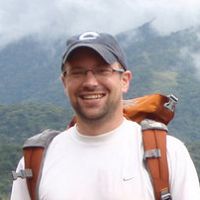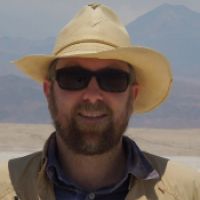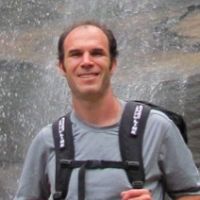Cross-CZO Studies
A major goal of the LCZO is to promote synthesis within the geosciences and between the various institutions and students involved with the project. While the focus and study areas of the LCZO are distinct to that of the Luquillo LTER and Puerto Rico NEON site, there are ample opportunities to collaborate with those groups. Likewise, LCZO members have collaborations with the many CZOs and various LTER sites in the study of carbon dynamics and quality (Plante, Silver, McDowell, Stroud Water Resource Center and others) and with the coastal site Delaware (Horton) as well as with an investigation of granite weathering with C. Rasmussen (Arizona CZO).
A map displaying connections between CZOs and other participating Universities.
Cross-CZO Studies use LCZO as an "End Member"
Because the Luquillo CZO is located in a tropical montane environment it is an “end-member” system with respect to temperature, rainfall, chemical and physical erosion. Therefore a major goal of the Luquillo CZO is to promote and foster cross-site research and exchange. These activities are not limited to the CZO network but also include the NSF-supported LTER Network, the USFS- Experimental Forests, NSF-NEON, and more specialized networks like Cloudnet (www.ccc). Current cross-site studies include investigations of deep critical zone structure using bore-holes and geophysics, use of isotopic tracers, testing soil-oxygen sensors and cloud mist collectors.
Comparison of LCZO rainfall and throughfall chemistry with other tropical montane sites. From Heartsill et al 2007
Comparison of LCZO rainfall and throughfall chemistry with other tropical montane sites. From Heartsill et al 2007
-
Cross-CZO Publications
2019
Impact of ecohydrological fluctuations on iron-redox cycling. Calabrese, Salvatore, and Amilcare Porporato (2019): Soil Biology and Biochemistry 133: 188-195 Cross-CZO
2019
Ecological and genomic attributes of novel bacterial taxa that thrive in subsurface soil horizons. Brewer, Tess E., Emma L. Aronson, Keshav Arogyaswamy, Sharon A. Billings, Jon K. Botthoff, Ashley N. Campbell, Nicholas C. Dove, Dawson Fairbanks, Rachel E. Gallery, Stephen C. Hart, Jason Kaye, Gary King, Geoffrey Logan, Kathleen A. Lohse, Mia R. Maltz, Emilio Mayorga, Caitlin O’Neill, Sarah M. Owens, Aaron Packman, Jennifer Pett-Ridge, Alain F. Plante, Daniel D. Richter, Whendee L. Silver, Wendy H. Yang, Noah Fierer (2019): mBio Oct 2019, 10 (5) e01318-19 Cross-CZO National
2019
Hillslope hydrology in global change research and Earth system modeling. Fan, Y., Clark, M., Lawrence, D. M., Swenson, S., Band, L. E., Brantley, S. L., P. D. Brooks, W. E. Dietrich, A. Flores, G. Grant, J. W. Kirchner, D. S. Mackay, J. J. McDonnell, P. C. D. Milly, P. L. Sullivan, C. Tague, H. Ajami, N. Chaney, A. Hartmann, P. Hazenberg, J. McNamara, J. Pelletier, J. Perket, E. Rouholahnejad‐Freund, T. Wagener, X. Zeng, E. Beighley, J. Buzan, M. Huang, B. Livneh, B. P. Mohanty, B. Nijssen, M. Safeeq, C. Shen, W. van Verseveld, J. Volk, D. Yamazaki (2019): Water Resources Research, vol 55 Cross-CZO
2018
Reassessing the dissolved molybdenum isotopic composition of ocean inputs: The effect of chemical weathering and groundwater. King, E.K. and Pett-Ridge, J.C. (2018): Geology 46 (11): 955-958 Cross-CZO National
2018
Examining the Role of Organic Compounds and Secondary Minerals on Ga/Al Fractionation in the Critical Zone. Justin B. Richardson*, Benjamin W. Kumpf, and Louis A. Derry (2018): Abstract 12c:345 presented at 2018 Goldschmidt Meeting, Boston, MA 12-17 August Cross-CZO
2018
Hydrologic Control of Catchment-Scale Dissolved Organic Carbon (DOC) Dynamics. Hang Wen*, Li Li, Julia N Perdrial, Benjamin Abbott, Thomas Adler, Susana Bernal, Remi Dupas, Sarah Godsey, Rebecca L Hale, Adrian Harpold, Donna M Rizzo, Gary Sterle, Kristen Underwood (2018): Abstract H13J-1880 presented at 2018 AGU Fall Meeting, Washington, D.C., 10-14 Dec Cross-CZO
2018
Interdisciplinary Teaching about Earth and the Environment for a Sustainable Future Book Chapter: Implementing and Assessing InTeGrate Critical Zone Science Materials in an Undergraduate Geoscience Program. Ashlee Dere, Carol Engelmann, Timothy White, Adam Wymore, Adam Hoffman, James Washburne, Martha Conklin (2018): Springer Cross-CZO National
2018
Fire, flood, and drought—Extreme climate events alter flow paths and stream chemistry. Murphy, S.F., McCleskey, R.B., Martin, D.A., Writer, J.H., and Ebel, B.A. (2018): Journal of Geophysical Research: Biogeosciences, 123 Cross-CZO
2018
Biogeochemical cycling of iron and carbon in humid (sub)tropical forest soils under fluctuating redox conditions. Barcellos, Diego (2018): PhD Dissertation, Department of Crop and Soil Sciences, University of Georgia Cross-CZO
2018
Mercury sourcing and sequestration in weathering profiles at six Critical Zone Observatories. Richardson, Justin B., Arnulfo A. Aguirre, Heather L. Buss, A. Toby O'Geen, Xin Gu, Daniella M. Rempe, and Daniel deB. Richter (2018): Global Biogeochemical Cycles, 32(10):1542-1555 Cross-CZO National
2018
Short-range-ordered (SRO) iron minerals are dynamic, emergent representations of recent environmental conditions in soils . Thompson, Aaron (2018): American Geophysical Union 2018 Fall Meeting, Washington, DC, 10-14 Dec 2018 Cross-CZO
2018
Potential for iron reduction increases with rainfall in montane basaltic soils of Hawaii. Hodges, C., E. King, J. Pett-Ridge, A. Thompson (2018): Soil Science Society of America Journal 82:176-185 Cross-CZO
2018
Influence of pO2 on iron redox cycling and anaerobic organic carbon mineralization in a humid tropical forest soil. Chen, Chunmei, Christof Meile, Jared Wilmoth, Diego Barcellos, and Aaron Thompson (2018): Environmental Science & Technology 52 (14): 7709-7719 Cross-CZO
2018
Ideas and perspectives: Strengthening the biogeosciences in environmental research networks. Richter, D.D., S.A. Billings, P.M. Groffman, E.F. Kelly, K.A. Lohse, W.H. McDowell, T.S. White, S. Anderson, D.D. Baldocchi, S. Banwart, S. Brantley, J.J. Braun, Z.S. Brecheisen, C.W. Cook, H.E. Hartnett, S.E. Hobbie, J. Gaillardet, E. Jobbagy, H.F. Jungkunst, C.E. Kazanski, J. Krishnaswamy, D. Markewitz, K. O’Neill, C.S. Riebe, P. Schroeder, C. Siebe, W.L. Silver, A. Thompson, A. Verhoef, G. Zhang (2018): Biogeosciences 15: 4815-4832 Cross-CZO National
2018
A net ecosystem carbon budget for snow dominated forested headwater catchments: linking water and carbon fluxes to critical zone carbon storage. Perdrial J., Brooks P.D., Swetnam T., Lohse K.A., Rasmussen C., Litvak M., Harpold A.A., Zapata-Rios X., Broxton P., Mitra B., Meixner M., Condon K., Huckle D., Stielstra C., Vázquez-Ortega A., Lybrand R., Holleran M., Orem C., Pelletier J., Chorover J. (2018): Biogeochemistry 138{3): 225–243 Cross-CZO
2018
CZO Network Attributes Table. CZO Network (2018): CZO National Office Cross-CZO National
2018
Faster redox fluctuations can lead to higher iron reduction rates in humid forest soils. Barcellos, Diego, K. Taylor Cyle, Aaron Thompson (2018): Biogeochemistry 137 (3): 367-378 Cross-CZO
2018
Beyond clay: towards an improved set of variables for predicting soil organic matter content. Rasmussen C., Heckman K., Wieder W.R., Keiluweit M., Lawrence C.R., Berhe A.A., Blankinship J.C., Crow S.E., Druhan J.L., Hicks Pries C.E., Marin-Spiotta E., Plante A.F., Schädel C., Schimel J.P., Sierra C.A., Thompson A., Wagai R. (2018): Biogeochemistry 137(3): 297–306 Cross-CZO
2017
Block-controlled hillslope form and persistence of topography in rocky landscape. Glade, RC, Anderson, RS, and Tucker, GE (2017): Geology (2017) 45 (4): 311-314. Cross-CZO
2017
Fostering Collaboration Across the US Critical Zone Observatories Network. Sharkey, S. and White, T. (2017): 2017 American Geophysical Union Fall Meeting, New Orleans, LA, 11-15 Dec Cross-CZO National
2017
How soil water storage moderates climate changes effects on transpiration, across the different climates of the Critical Zone Observatories. Heckman, C.; Tague, C. (2017): Fall Meeting, American Geophysical Union, December 2017. Abstract H23H-1777. Cross-CZO National
2017
New Opportunities for Critical Zone Science. Sullivan, P.L., Wymore, A.S., McDowell, W.H. et al. (2017): 2017 CZO Arlington Meeting White Booklet Cross-CZO National
2017
Critical zone structure controls concentration-discharge relationships and solute generation in forested tropical montane watersheds. Wymore, A.; Brereton, R. L.; Ibarra, D. E.; Maher, K.; McDowell, W. H. (2017): Water Resources Research 53, 6279–6295 Cross-CZO National
2017
Concentration-Discharge Relations in the Critical Zone: Implications for Resolving Critical Zone Structure, Function and Evolution. Chorover, J., Derry, L. A., McDowell, W. H. (2017): Water Resources Research 53(11): 8654–8659 Cross-CZO National
2017
Growing new generations of critical zone scientists. Wymore, Adam S., Nicole R. West, Kate Maher, Pamela L. Sullivan, Adrian Harpold, Diana Karwan, Jill A. Marshall, Julia Perdrial, Daniella M. Rempe and Lin Ma (2017): Earth Surface Processes and Landforms 42 (14): 2498-2502 Cross-CZO National
2017
Hot spots and hot moments for redox, iron and carbon cycling in soils across Luquillo and Calhoun CZOs. Barcellos, D., and Thompson, A. (2017): Critical Zone Science: Current Advances and Future Opportunities, Arlington, VA, 4-6 June, 2017 Cross-CZO
2017
Soil organic matter stabilization by Fe-C interactions in temperate and tropical soils: A cross-CZO comparison. Coward, E.K., Thompson, A., and Plante, A.F. (2017): Critical Zone Science: Current Advances and Future Opportunities, Arlington, VA, 4-6 June, 2017 Cross-CZO
2017
Influence of Linked Hydrologic and Geomorphic Processes on the Terrestrial Carbon Cycle. Dialynas, Ioannis Minas (Yannis) (2017): Doctoral dissertation, School of Civil and Environmental Engineering, Georgia Institute of Technology Cross-CZO
2017
Geochemical evolution of the Critical Zone across variable time scales informs concentration-discharge relationships: Jemez River Basin Critical Zone Observatory. McIntosh J.C., Schaumberg C., Perdrial J., Harpold A., Vázquez-Ortega A., Rasmussen C., Vinson D., Zapata-Rios X., Brooks P.D., Meixner T., Pelletier J., Derry L., Chorover J. (2017): Water Resources Research 53(5): 4169–4196 Cross-CZO National
2017
Designing a network of critical zone observatories to explore the living skin of the terrestrial Earth. Brantley, S.L., McDowell, W.H., Dietrich, W.E., White, T.S., Kumar, P., Anderson, S., Chorover, J., Lohse, K.A., Bales, R.C., Richter, D., Grant, G., and Gaillardet, J. (2017): Earth Surface Dynamics, 5, 841–860 Cross-CZO National
2017
Reviews and syntheses: on the roles trees play in building and plumbing the critical zone. Brantley, Susan L., David M. Eissenstat, Jill A. Marshall, Sarah E. Godsey, Zsuzsanna Balogh-Brunstad, Diana L. Karwan, Shirley A. Papuga, Joshua Roering, Todd E. Dawson, Jaivime Evaristo, Oliver Chadwick, Jeffrey J. McDonnell, Kathleen C. Weathers (2017): Biogeosciences, 14, 5115-5142 Cross-CZO National
2017
Conference Program - AGU Chapman Conference on Extreme Climate Event Impacts on Aquatic Biogeochemical Cycles and Fluxes. Inamdar, S., McDowell W.H., Shanley J. B., Minor E., Park J. (2017): AGU Chapman Conference, San Juan, PR 2017 Cross-CZO National
2017
Controls on deep critical zone architecture: a historical review and four testable hypotheses. Riebe, C. S., Hahm, W. J., Brantley, S. L. (2017): Earth Surface Processes and Landforms, 42 (1): 128–156 Cross-CZO National
2016
Representation of diffusion controlled carbon stabilization in reactive transport models. Thompson, A., Druhan, J.L., Keiluweit, M., Wagai, R., Plante, A.F., Lawrence, C.R., Berhe, A.A., Sierra, C.A., Rasmussen, C., Marin-Spiotta, E., Blankinship, J.C., Schimel, J., Heckman, K.A., Crow, S.E., and Wieder, W.R. (2016): American Geophysical Union 2016 Fall Meeting, San Francisco, CA Cross-CZO
2016
Soil organic matter stabilization by Fe-C interactions in temperate and tropical soils: A cross-CZO comparison. Coward, E.K., Thompson, A., Markewitz, D., Richter, D. deB., and Plante, A.F. (2016): Soil Science Society of America Annual Meeting, Phoenix, AZ, 6-9 November 2016 Cross-CZO
2016
Drought in the Critical Zone: Engaging Students in Authentic Inquiry Through Data Jam. McGee, S., and Rodríguez Báez, N. (2016): The Earth Scientist XXXII, no. 3 (Fall 2016): 19–21 Cross-CZO National
2016
Monarchs and the Critical Zone: A new spin on the study of butterflies. Cook, K., Augustinsky, M., Dye, A., Flowers, J., and McGee, S. (2016): The Earth Scientist XXXII, no. 3 (Fall 2016): 4–6 Cross-CZO National
2016
Special issue of The Earth Scientist about the Critical Zone and the US NSF Critical Zone Observatory (CZO) program. CZO Education/Outreach team (2016): The Earth Scientist, Volume XXXII, Issue 3, Fall 2016 Cross-CZO National
2016
Steering Committee report for Reynolds Creek CZO site visit and PI meeting. Keller K., Grant G. (2016): CZO Steering Committee Cross-CZO National
2016
Impact of hydrologically driven hillslope erosion and landslide occurrence on soil organic carbon dynamics in tropical watersheds. Dialynas,Y.G., Bastola, S., Bras, R.L., Marin-Spiotta, E., Silver, W.L., Arnone, E., and Noto, L.V. (2016): Water Resources Research 52(11): 8895-8919 Cross-CZO
2016
Variation of organic matter quantity and quality in streams at Critical Zone Observatory watersheds. Miller, Matthew P., Boyer, Elizabeth W., McKnight, Diane M., Brown, Michael G., Gabor, Rachel S., Hunsaker, Carolyn T., Iavorivska, Lidiia, Inamdar, Shreeram, Johnson, Dale W., Kaplan, Louis A., Lin, Henry, McDowell, William H., Perdrial, Julia N. (2016): Water Resources Research, 52 (10): 8202–8216 Cross-CZO
-
Cross-CZO People
Cross-CZO INVESTIGATOR, COLLABORATOR
.(JavaScript must be enabled to view this email address)
Georgia Tech
hydrology, geomorphology
Cross-CZO INVESTIGATOR
.(JavaScript must be enabled to view this email address)
Hydrology and Biogeochemistry
.(JavaScript must be enabled to view this email address)
Penn State
Aqueous Geochemistry, Geochemical Kinetics, Microbial Biogeochemistry
Cross-CZO INVESTIGATOR
.(JavaScript must be enabled to view this email address), 404 385 2700
hydrology
Cross-CZO INVESTIGATOR, COLLABORATOR
.(JavaScript must be enabled to view this email address)
Near-surface geophysics
.(JavaScript must be enabled to view this email address)
Soil/sediment erosion, production and transport
Cross-CZO COLLABORATOR
.(JavaScript must be enabled to view this email address), 610.519.3589
Environmental Geology; Carbon Cycle; Global Climate Change
Cross-CZO INVESTIGATOR, PostDoc
.(JavaScript must be enabled to view this email address)
Geology, Geochemistry, Isotope Geochemistry
Cross-CZO INVESTIGATOR
.(JavaScript must be enabled to view this email address)
USGS-Boulder
Geochemistry and hydrology of rivers, environmental science communication
Cross-CZO INVESTIGATOR, COLLABORATOR
.(JavaScript must be enabled to view this email address)
Penn
Biogeochemistry
Cross-CZO INVESTIGATOR, COLLABORATOR
.(JavaScript must be enabled to view this email address)
UGA
Soil biogeochemistry
-
Cross-CZO News
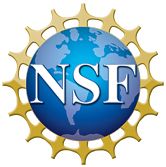
Critical Zone Collaborative Network
23 Nov 2020 (National, Boulder, Calhoun, Catalina-Jemez, Christina, Eel, IML, Luquillo, Reynolds, Shale Hills, Sierra) - As of fall 2020, the Critical Zone Observatory (CZO) program has been succeeded by the Critical Zone Collaborative Network (CZ Net).
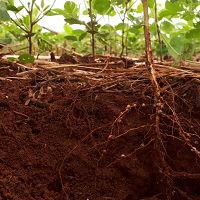
NSF Blog: No soils, no life
27 Oct 2020 (National, Boulder, Calhoun, Catalina-Jemez, Eel, IML, Luquillo, Reynolds, Shale Hills, Sierra) - They’re beneath our feet, but we seldom hear important signals in the soils
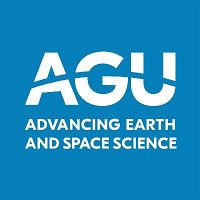
AGU 2020: Sessions related to CZ Science
06 Oct 2020 (National, Boulder, Calhoun, Catalina-Jemez, Eel, IML, Luquillo, Reynolds, Shale Hills, Sierra) - A list of sessions related to CZ Science at the upcoming virtual AGU 2020 Fall Meeting.

October 2020 Issue of Eos features Critical Zone Science
28 Sep 2020 (National, Boulder, Calhoun, Catalina-Jemez, Eel, IML, Luquillo, Reynolds, Shale Hills, Sierra) - In the October 2020 Issue, Eos focuses on the Critical Zone at a pivotal point as the discipline comes of age.
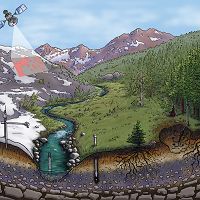
2020 CZO Webinar Series on Sustainability
17 Jun 2020 (National, Boulder, Calhoun, Catalina-Jemez, Eel, IML, Luquillo, Reynolds, Shale Hills, Sierra) - For an updated listing of these talks, including abstracts, see /national/education-outreach/sustainability-2020/ The U.S....
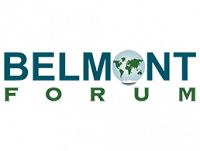
Belmont Forum Announces Collaborative Research Call on Soils
20 Apr 2020 (National, Boulder, Calhoun, Catalina-Jemez, Eel, IML, Luquillo, Reynolds, Shale Hills, Sierra) - The Belmont Forum is pleased to announce the launch of a collaborative research call on the theme: Towards Sustainability of Soils and Groundwater...

CZOs at AGU 2019
19 Nov 2019 (National, Boulder, Calhoun, Catalina-Jemez, Eel, IML, Luquillo, Reynolds, Shale Hills, Sierra) - A list of CZ-related sessions, abstracts and events at the 2019 AGU Fall Meeting.
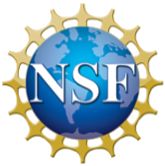
CZ colleagues: Please contact us about proposals for NSF’s CZ Collaborative Network, due 02 Dec 2019
08 Jul 2019 (National, Boulder, Calhoun, Catalina-Jemez, Christina, Eel, IML, Luquillo, Reynolds, Shale Hills, Sierra) - CZO will end Nov 2020, succeeded by the “CZ Collaborative Network”. Let’s explore how the CZ community can build upon the CZOs via new NSF proposals.

NSF solicitation: Dynamics of Integrated Socio-Environmental Systems (CNH2)
20 Nov 2018 (National, Boulder, Calhoun, Catalina-Jemez, Eel, IML, Luquillo, Reynolds, Shale Hills, Sierra) - NSF Crosscutting CNH2: Dynamics of Integrated Socio-Environmental Systems (CNH2) Solicitation 19-528 DUE DATES Letter of Intent Deadline...
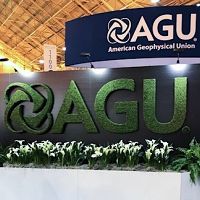
CZOs at AGU 2018
19 Nov 2018 (National, Boulder, Calhoun, Catalina-Jemez, Eel, IML, Luquillo, Reynolds, Shale Hills, Sierra) - The 2018 AGU Fall Meeting will be held December 10-14 in Washington, D.C.

NSF Discovery articles focus on the CZOs.
10 May 2018 (National, Boulder, Calhoun, Catalina-Jemez, Christina, Eel, IML, Luquillo, Reynolds, Shale Hills, Sierra) - The Discoveries section of the National Science Foundation's website on Critical Zone Observatories (CZOs).
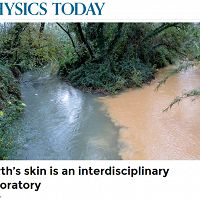
Earth’s skin is an interdisciplinary laboratory
29 Jan 2018 (National, Boulder, Calhoun, Catalina-Jemez, Eel, IML, Luquillo, Reynolds, Shale Hills, Sierra) - In the January 2018 issue of Physics Today, writer Toni Feder explores the scope of CZ research in the article, “Earth’s skin is an...
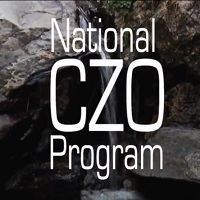
White paper of 2017 CZ Science Meeting in Arlington, VA
01 Jan 2018 (National, Boulder, Calhoun, Catalina-Jemez, Christina, Eel, IML, Luquillo, Reynolds, Shale Hills, Sierra) - New Opportunities for Critical Zone Science Following the June 2017 Arlington Meeting for Critical Zone Science (hosted by CZO), a white booklet...

Undergraduate course curriculum, “Introduction to Critical Zone Science,” available free online
01 Jan 2018 (National, Boulder, Calhoun, Catalina-Jemez, Christina, Eel, IML, Luquillo, Reynolds, Shale Hills, Sierra) - A 15-week semester-long upper-level undergraduate course curriculum entitled “Introduction to Critical Zone Science” is now available free online.
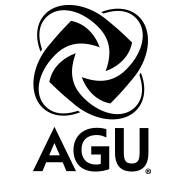
CZOs at AGU 2017
05 Dec 2017 (National, Boulder, Calhoun, Catalina-Jemez, Christina, Eel, IML, Luquillo, Reynolds, Shale Hills, Sierra) - Information on CZO award recipients, events, presentations, etc. at the 2017 AGU Fall Meeting.
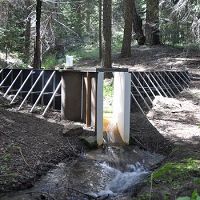
Water Resources Research Special Collection: Concentration-discharge relations in the critical zone
30 Oct 2017 (National, Boulder, Calhoun, Catalina-Jemez, Christina, Eel, IML, Luquillo, Reynolds, Shale Hills, Sierra) - Water Resources Research published a new special collection in September 2017 featuring concentration-discharge research from multiple CZOs.
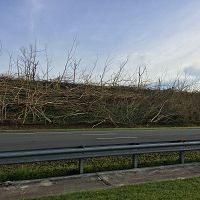
Assessing The Damage To Puerto Rico’s Rain Forest
30 Oct 2017 (Luquillo, Reynolds, Shale Hills) - The trees in the El Yunque National Forest in Puerto Rico were raked bare by Hurricane Maria. Grizelle Gonzalez talks with NPR's Melissa Block.
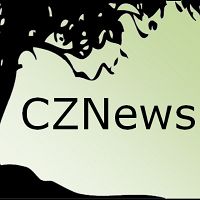
CZNews: Fall 2017
25 Oct 2017 (National, Boulder, Calhoun, Catalina-Jemez, Christina, Eel, IML, Luquillo, Reynolds, Shale Hills, Sierra) - The CZO National Office's quarterly newsletter CZNews: Fall 2017.

CZNews: Summer 2017
27 Jul 2017 (National, Boulder, Calhoun, Catalina-Jemez, Christina, Eel, IML, Luquillo, Reynolds, Shale Hills, Sierra) - CZO National Office's quarterly newsletter CZNews: Summer 2017.
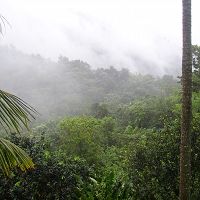
NSF Discovery: Can an ancient ocean shoreline set the stage for a tropical forest of today?
13 Jul 2017 (National, Luquillo) - Researchers at NSF Critical Zone Observatory and Long-Term Ecological Research sites are finding out.
_200_200_80auto_s_c1.jpg)
Contribute a classroom/field activity to NAGT’s Teach the Earth
22 May 2017 (National, Boulder, Calhoun, Catalina-Jemez, Christina, Eel, IML, Luquillo, Reynolds, Shale Hills, Sierra) - Contribute a classroom or field activity to Teach the Earth.

The frontier beneath our feet — an AGU commentary on the critical zone
21 Apr 2017 (National, Boulder, Calhoun, Catalina-Jemez, Christina, Eel, Luquillo, Reynolds, Shale Hills, Sierra) - AGU has published a collection of commentaries highlighting the important role Earth and space science research plays in society.

2017 CZO Webinar Series: Critical Zone and Society
06 Apr 2017 (National, Boulder, Calhoun, Catalina-Jemez, Christina, Eel, IML, Luquillo, Reynolds, Shale Hills, Sierra) - 2017 CZO Webinar Series: Critical Zone and Society.
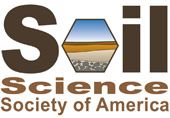
K-12 Soil Science Teacher Resources
24 Mar 2017 (National, Boulder, Calhoun, Catalina-Jemez, Christina, Eel, IML, Luquillo, Reynolds, Shale Hills, Sierra) - The Soil Science Society of America (SSSA) is a professional scientific society, made up of soil scientists, educators, and consultants focused on...
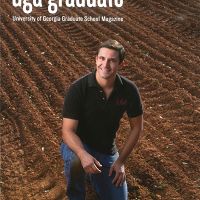
Diego Barcellos Featured in UGA Graduate School Magazine
08 Feb 2017 (Calhoun, Luquillo) - The Winter 2017 issue of UGA Graduate features an in-depth article about cross-CZO grad student Diego Barcellos

CZOs at AGU 2016
22 Nov 2016 (National, Boulder, Calhoun, Catalina-Jemez, Christina, Eel, IML, Luquillo, Reynolds, Shale Hills, Sierra) - CZOs at AGU 2016: Agenda and award recipients
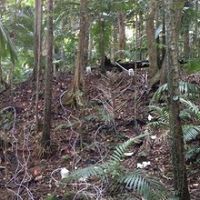
Critical Zone Science at ESA 2016
13 Jul 2016 (National, Luquillo) - National Science Foundation-funded research results presented at 2016 Ecological Society of America meeting in August
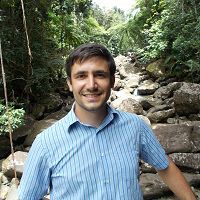
Critical Zone Profile - Diego Barcellos
09 Jun 2016 (National, Calhoun, Luquillo) - PhD Student, Soil Science, University of Georgia
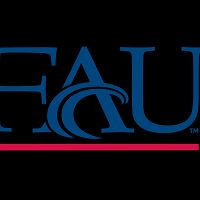
Cross CZO Collaborator brings hydrogeophysical methods to the CZO
09 May 2016 (Luquillo, Shale Hills) - Luquillo CZO PI Xavier Comas, Professor of Geosciences at Florida Atlantic University, joined the Susquehanna Shale Hills CZO team along with...

Critical Zone Profile - JAIVIME EVARISTO (ecohydrologist, PhD student)
23 Mar 2016 (National, Luquillo) - PhD student, Global Institute for Water Security, University of Saskatchewan
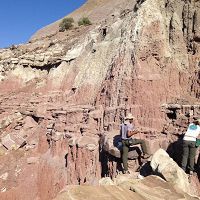
EOS: Taking the Pulse of the Earth’s Surface Systems
04 Dec 2015 (National, Boulder, Calhoun, Catalina-Jemez, Christina, Eel, IML, Luquillo, Reynolds, Shale Hills, Sierra) - Taking the Pulse of the Earth's Surface Systems In September of 2014, Laurel Larsen (UC Berkley), Elizabeth Hajek (Penn State), and others...
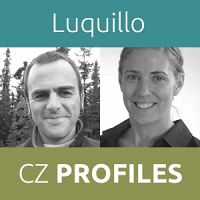
Critical Zone Profiles - Meet the people doing CZO science (Luquillo CZO)
15 Nov 2015 (National, Luquillo) - Get a sense of the people and the work. Several members of the Luquillo CZO are profiled here, including students and professors.
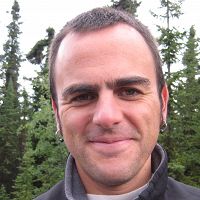
Critical Zone Profile - ADAM WYMORE (freshwater ecologist, post-doctoral researcher)
15 Nov 2015 (National, Luquillo) - Post-Doctoral Researcher, University of New Hampshire

Critical Zone Profile - JANE WILLENBRING (geomorphologist, Assistant Professor)
15 Nov 2015 (National, Luquillo) - Assistant Professor of Earth and Environmental Science, University of Pennsylvania

Critical Zone Profile - WHENDEE SILVER (ecosystem ecologist, Professor)
15 Nov 2015 (National, Luquillo) - Professor of Ecosystem Ecology and Biogeochemistry, Rudy Grah Chair of Forestry and Sustainability, University of California Berkeley
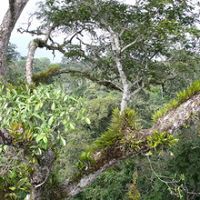
CZO Ecology Session at ESA 2015 Meeting
16 Jul 2015 (National, Calhoun, Catalina-Jemez, Luquillo, Reynolds) - A session entitled 'Ecology in the Critical Zone" will take place at the Ecological Society of America (ESA) 2015 Meeting held from August...
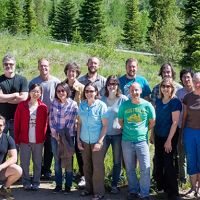
Salon on Deep Critical Zone Architecture held June 14-18, 2015
26 Jun 2015 (National, Boulder, Calhoun, Eel, Luquillo, Shale Hills) - An international group of 17 researchers met at Snow Mountain Ranch, Granby, Colorado for 3.5 days of presentations and discussions on the nature of...
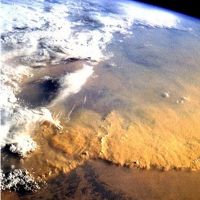
Learning exercise: How African dust feeds the Puerto Rico ecosystem
10 Jun 2015 (National, Luquillo) - CZO and AGI distribute a hands-on learning exercise on the "Connectivity of Global Ecosystems: The Influence of Dry Deserts on Tropical Rain Forests"
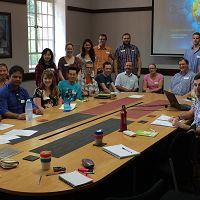
Video: CZ graduate students reflect on experience at University of Western Australia Summer School
13 May 2015 (National, Boulder, Catalina-Jemez, Luquillo, Reynolds) - Students from around the Worldwide Universities Network (WUN) gathered in Perth for two weeks in Feb. 2015 for the Inaugural WUN Summer School.
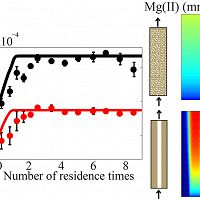
Reactive Transport Modeling Survey – Community Needs for Biogeochemical Studies
08 Apr 2014 (National, Boulder, Calhoun, Catalina-Jemez, Christina, Eel, IML, Luquillo, Reynolds, Shale Hills, Sierra) - Reactive Transport Modeling Survey – Community Needs for Biogeochemical Studies The below survey is designed by Alexis Navarre-Sitchler, Kate...
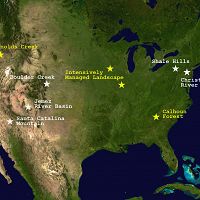
“What’s so critical about the Critical Zone?” webinar
02 Apr 2014 (National, Boulder, Calhoun, Catalina-Jemez, Christina, Eel, IML, Luquillo, Reynolds, Shale Hills, Sierra) - March 31, 2014. Dr. Enriqueta Barrera (NSF CZO program director) and Dr. Gordon Grant (USFS; CZO Steering Committee chairperson)
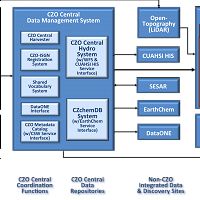
2014 CZOData Cyber-Seminar Spring Series
06 Mar 2014 (National, Boulder, Calhoun, Catalina-Jemez, Christina, Eel, IML, Luquillo, Reynolds, Shale Hills, Sierra) - Presentations describing the Integrated CZO Data system and how to use it; for interested CZO investigators, students & staff.
UNESCO IHP has issued a Monograph on the Science and Practice of Integrated River Basin Management
17 Jan 2014 (National, Luquillo) - The report is the product of the North American - UNESCO HELP workshop held at Portland State University, Portland, Oregon, May 10 -12,...
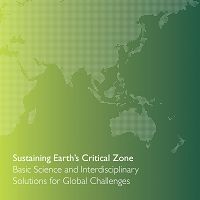
Sustaining Earth’s Critical Zone - Report from 2011 International CZ Meeting
29 Jul 2013 (National, Boulder, Catalina-Jemez, Christina, Luquillo, Shale Hills, Sierra) - International CZ science community outlines interdisciplinary research needed to address land use changes, climate change, and biodiversity decline
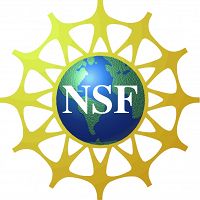
Discoveries in the Critical Zone: Where Life meets Rock
11 Jul 2013 (National, Boulder, Catalina-Jemez, Christina, Luquillo, Shale Hills, Sierra) - The National Science Foundation's Cheryl Dybas recently finalized a new report entitled "Discoveries in the Critical Zone: Where Life meets...
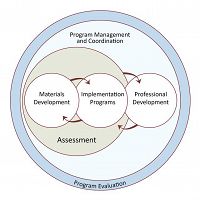
InTeGrating CZO Science
06 Jun 2013 (Catalina-Jemez, Christina, Luquillo, Shale Hills, Sierra) - During the week of May 19, five faculty members interested in Critical Zone science traveled to Northfield, MN to participate in an InTeGrate...

In Memoriam: Frederick Scatena 1954-2013
02 Jan 2013 (National, Boulder, Catalina-Jemez, Christina, Luquillo, Shale Hills, Sierra) - Frederick Scatena, PI of the Luquillo CZO, died peacefully at home on January 2, 2013 after a brief battle with cancer. We mourn the loss.
-
Cross-CZO Events
CUAHSI Cyberseminar - Fred Scatena on Luquillo CZO
The Luquillo CZO: Linking Lithology to Critical Zone Processes
Online.CZO-Annual PI meeting:
CZO-Annual PI meeting 2012, hosted by Luquillo Critical Zone Observatory
Hotel El Convento, Old San Juan, Puerto Rico.AGU Fall Meeting 2012
CZOs give more than 125 presentations at the 2012 American Geophysical Union Fall Meeting
Moscone Center, Fourth and Howard Streets, San Francisco, CA.EarthCube-CZO Workshop
EarthCube Domain Workshop: Engaging the Critical Zone community to bridge long tail science with big data
University of Delaware, Newark, DE.Amtrak Club "Soil to Sea Geomorphology" Symposium
2013 Amtrak Club meeting, 2nd annual symposium on "Soil to Sea Geomorphology"
The Johns Hopkins University, Baltimore, Maryland.Goldschmidt 2013 conference
Session 16B: Probing the Critical Zone (and related Session 19C) will be held at Goldschmidt 2013 in Florence, Italy 25-30 August 2013.
Florence, Italy.POSTPONED - 2013 CZO All-Hands Meeting
Postponed until 2014. 2nd Biannual National CZO Network All-Hands Meeting
University of Delaware, Clayton Hall.GSA Annual Meeting
Geological Society of America, 2013 Annual Meeting - CZO presentations
Colorado Convention Center, Denver, Colorado.The Architecture of Deep Weathering at Two CZOs
The Architecture of Deep Weathering at Two CZOs: Groundwater, Regolith, and Solutes at Susquehanna Shale Hills and Luquillo Experimental Forest
Colorado Convention Center Mile High Ballroom 2C.Philadelphia 2014 workshop: Reactive Transport Modeling
The Geochemist's workbench Philadelphia 2014 workshop: Reactive Transport Modeling
The University of Pennsylvania: Room 360 Hayden Hall.“What’s so critical about the Critical Zone?” webinar
Speakers: Dr. Enriqueta Barrera (NSF) and Dr. Gordon Grant (USFS)
Internet .December 8 CZO webinar
Using a CZO network to explore the architecture, dynamics and evolution of the Critical Zone
Online.CZOs at AGU: Townhall
AGU Townhall event entitled "Critical Zone Observatories: Past, Present, Future"
Room 2005, Moscone West, San Francisco, California.BcCZO Monthly meeting
INSTAAR, room 269.1:1 Data Consultation: Luquillo CZO and CZOData team
Luquillo CZO and the CZOData team will discuss sharing data.
Online: 12-2 EDT / 11-1 CDT / 10-12 MDT / 9-11 PDT.BcCZO Monthly meeting
INSTAAR, room 269.BcCZO Monthly meeting
INSTAAR, room 269.AGU 2015: A Town Hall for the Network of CZOs
AGU 2015: A Town Hall for the Network of Critical Zone Observatories (TH25D)
San Francisco, CA - Moscone Center, Moscone West - 2010.NSF Review of CZO Network
Review of CZO network by NSF will occur in Fall 2016
National Science Foundation, Arlington, VA.2016 AGU Fall Meeting
American Geophysical Union Annual Meeting in San Francisco, CA
Moscone Center, San Francisco, California .CZO Town Hall at AGU 2016
Town Hall: Critical Zone Observatories: Platforms for Collaborative Science
AGU Meeting, San Francisco, CA.AGU Chapman Conference: Extreme Climate Event Impacts
AGU Chapman Conference on Extreme Climate Event Impacts on Aquatic Biogeochemical Cycles and Fluxes
San Juan, Puerto Rico.CZO Webinar: Critical Zone Services
Critical Zone Services webinar presented by David Breshears and Jason Field
Online.Webinar: Blue Revolution: Water scarcity in a changing world
Blue Revolution: Water scarcity in a changing world webinar presented by Praveen Kumar.
Online.CZO Webinar: Drought resilience and water security
Drought resilience and water security presented by Roger Bales
Online.CZO Webinar: Forecasting of Earth surface processes
Forecasting of Earth surface processes webinar presented by Jon Pelletier.
Online.CZO Webinar: Policy Relevance of Critical Zone Science
Policy Relevance of Critical Zone Science webinar presented by Steve Banwart
Online.2017 Arlington Meeting for Critical Zone Science
"Critical Zone Science: Current Advances and Future Opportunities”. Arlington, VA (near NSF).
DEADLINE: 01 APRIL 2017 for registration & optional abstract.
Hilton Hotel, Arlington, Virginia.CZO Town Hall at AGU 2017
Town Hall: Critical Zone Observatories: Platforms for Collaborative Science
New Orleans Ernest N. Morial Convention Center.CZO / LTER / NEON / ISMC Joint Workshop
Modeling the Critical Zone; State of the Art, Data Integration, and Frontiers
Boulder, Colorado. -
Cross-CZO Models
Bedrock and Regolith Weathering (Luquillo, Shale Hills)
Explore Further
